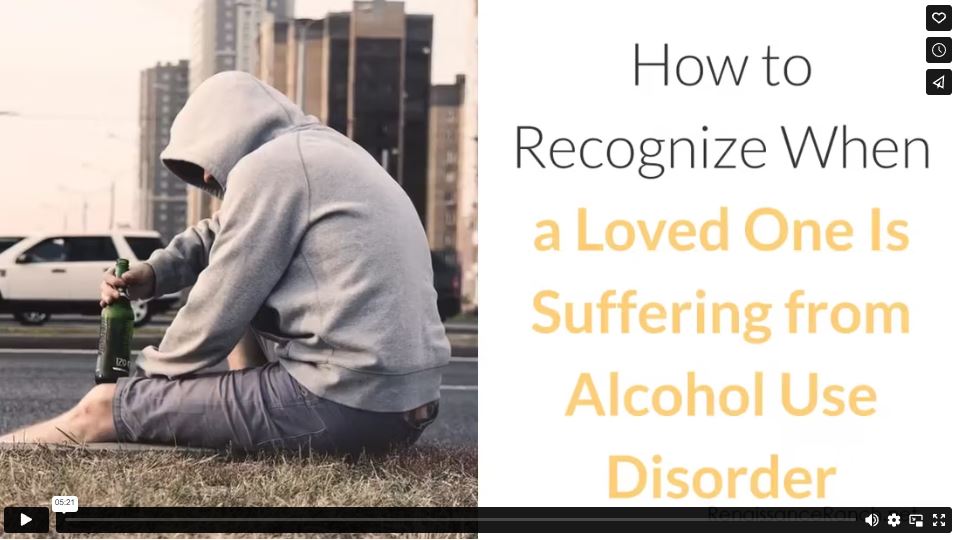![]()
Alcohol is almost everywhere in our society and a staple at most social events – cue the ballgame, barbecue, office party, dinner out, or couples game night. So, how can you tell if your loved one has moved beyond drinking socially to drinking habitually? We may not like the answers, but we can’t afford not to ask the right questions when it comes to alcohol addiction.
According to the 2019 National Survey on Drug Use and Health (NSDUH), roughly 95,000 people die every year from alcohol-related causes, making alcohol abuse the third-leading preventable cause of death in the United States. The only good news in that statistic is the word “preventable.” Indeed, tragic endings can be averted by recognizing the problem and helping your loved one start an alcohol rehab treatment program.
According to the Diagnostic and Statistical Manual of Mental Disorders, Fifth Edition (DSM-5), health care professionals use these 11 benchmark questions to diagnose whether a person has an Alcohol Use Disorder (AUD), as well as the severity of the condition. When a person is diagnosed with an AUD, their drinking cannot be explained away as a simple release from stress or adherence to social norms. Instead, it has become an abusive habit that requires immediate intervention.
The number of reported symptoms determines the severity of the disease. For example, two to three symptoms indicate mild AUD, four to five a moderate AUD, and more than six a severe AUD.
In the past year, has your loved one experienced times when they:
- Ended up drinking more, or longer, than they had intended?
- More than once wanted to cut down or stop drinking, or tried to, but couldn’t?
- Spent a lot of time drinking, or being sick, or getting over the aftereffects?
- Wanted a drink so badly they couldn’t think of anything else?
- Found that drinking – or being sick from drinking – often interfered with taking care of home and family responsibilities? Or caused job troubles or school problems?
- Continued to drink even though it was causing trouble with their family or friends?
- Gave up or cut back on activities that were important or interesting to them, or which gave them pleasure, in order to drink?
- More than once got into situations while or after drinking that increased their chances of getting hurt, such as driving, swimming, using machinery, walking in a dangerous area, or having unprotected sex?
- Continued to drink even though it made them feel depressed or anxious or added to another health problem? Or after having had a memory blackout?
- Had to drink much more than they once did to get the effect they want? Or found that their usual number of drinks had much less effect than before?
- Found that when the effects of alcohol were wearing off, they had withdrawal symptoms, such as trouble sleeping, shakiness, restlessness, nausea, sweating, a racing heart, or a seizure? Or sensed things that were not there (hallucinations)?
Once you suspect your loved one may suffer from an AUD, it’s time to talk about intervention. This is a delicate stage, as admitting to an addiction is anything but simple. Here are some ideas on how to broach the subject in a loving, non-confrontational manner:
1. Choose a time when your loved one has not been drinking, and you are both focused and calm, not early in the morning with a hangover or late at night when you are both tired. Also, if that means sending the kids to a friend’s home for a few hours, do it. It’s best to turn off your phones and do everything you can to limit distractions.
2. Express your concerns about how their drinking affects their health, your relationship, their job, etc., as neutrally as you can. This is not a time to shame or judge, but rather to be compassionate and understanding. Try conversation starters like, “I’m a bit worried about your drinking,” or “I’ve noticed how much your behavior changes when you drink. It really hurts me to see you go through this.”
3. Encourage your loved one to open up and talk with you about why they drink. Are they bored, stressed, depressed? Realize this discussion could lead to anger or defensiveness, so if he or she doesn’t want to open up to you, invite them to talk to a professional. They may feel more comfortable talking with a neutral third party, such as a doctor or therapist.
4. Emphasize that alcoholism is a disease, not a personal failure. And just like you wouldn’t expect them to be able to ‘will’ themselves out of diabetes or lung cancer, you can’t expect them to beat alcoholism on their own. Addiction treatment centers like Renaissance Ranch offer programs that address alcoholism and provide vital support and care to aid in recovery.
Having a loved one diagnosed with an Alcohol Use Disorder certainly is devastating, but it’s not insurmountable. On the contrary, with professional help, recovery can be real and lasting. But it can’t really begin until you both acknowledge there’s a problem. Once you take that step, everything’s possible.
Healing is hard, but you don’t have to walk through it alone. If you’re struggling with any aspect of addiction, addiction recovery, or reintegration, we can help. The Renaissance Ranch team is here to assist you through all aspects of the drug addiction recovery process. To learn more about our assistance, please contact us today at (801) 308-8898.
Video

